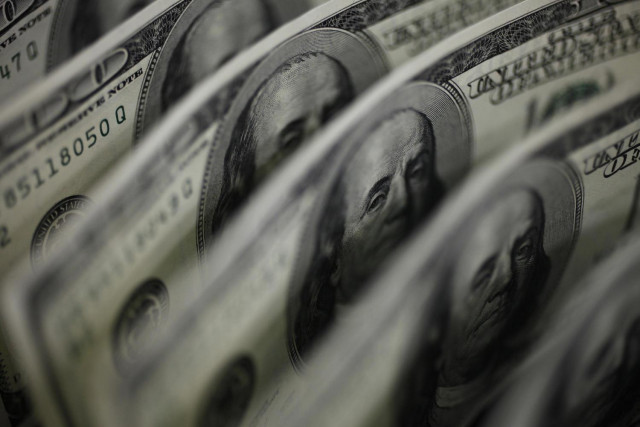Pakistan to launch dollar-based savings certificates for overseas residents
Offer will help stabilise dwindling foreign currency reserves with expected investment of up to $1b

The certificates will initially be offered in Gulf Cooperation Council (GCC) countries - Saudi Arabia, Kuwait, the United Arab Emirates, Qatar, Bahrain and Oman - which are a big source of remittances from overseas Pakistanis working there. PHOTO: REUTERS
"Non-residents are expected to invest $500 million to $1 billion in savings certificates over the next one year," Central Directorate of National Savings (CDNS) Director General Zafar Masud told media on the sidelines of a ceremony held for announcing the appointment of the Manager to the Issue on Thursday.
"The objective of the certificates is to help stabilise foreign exchange reserves of the country…The government has planned to offer Overseas Pakistanis Savings Certificates in May or June," he said.
The certificates are being floated just a couple of months after the unveiling of an amnesty scheme for declaring the hidden assets held abroad or in the country with a nominal 2-5% tax payment.
"The savings certificates have nothing to do with the amnesty scheme," Masud clarified. "These will be offered to only offshore Pakistanis and not to onshore Pakistanis," so that beneficiaries of the amnesty scheme could not invest in the certificates, he explained.
Pakistan’s savings take a hit as low interest rates bite
However, another CDNS official, on condition of anonymity, pointed out that those overseas Pakistanis, who were non-filers of tax returns, could still park their savings by purchasing the certificates and enjoy a good rate of return.
They would invest according to laws of the country they were living in and not as per Pakistani laws, he clarified.
The rate of return on the savings certificates, which will be for three and five years, will be much higher than the one offered by banks on foreign currency accounts. CDNS has not yet announced the rate of return.
"It will be significantly higher compared to what offered by banks, but lower than the return CDNS offered on its Defence and Behbood savings certificates at 7.54% and 9.36%, respectively, as on April 19, 2018," he said.
CDNS will also set an upper limit for investment in the certificates by each non-resident Pakistani.
Miftah directs National savings to extend maximum facilitation to pensioners
According to the second CDNS official, the government is considering setting the ceiling in the range of $100,000-250,000 for an overseas Pakistani. They may be required to invest a minimum $1,000 each.
Investors will be able to en cash the certificates at any point in time. They, however, will have to pay a penalty if they en cash the certificates before the maturity of three and five years.
The certificates will initially be offered in Gulf Cooperation Council (GCC) countries - Saudi Arabia, Kuwait, the United Arab Emirates, Qatar, Bahrain and Oman - which are a big source of remittances from overseas Pakistanis working there.
The dollar-based savings certificates would become a permanent product of CDNS going forward. Later, the certificates could be offered to foreign investors as well, officials said.
CDNS is a government arm that sells savings certificates to the general public in a bid to provide funds for the government for running its affairs. "This is the first product of its own nature," Masud said referring to the dollar-based savings certificates.



















COMMENTS
Comments are moderated and generally will be posted if they are on-topic and not abusive.
For more information, please see our Comments FAQ